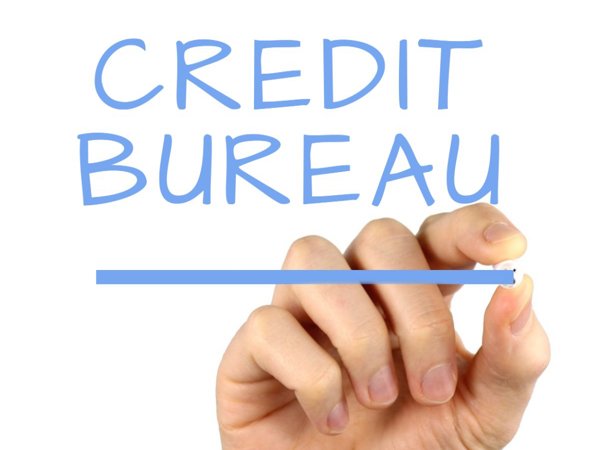In Nigeria’s financial ecosystem, understanding the role of credit bureau reporting is crucial, especially when it comes to securing loans. Many borrowers are unaware of how their financial behaviors are tracked and reported, and how that affects their ability to borrow money. Whether you are applying for a personal loan, a mortgage, or a business loan, your credit report can make or break your chances of approval.
In this blog post, we’ll explain how credit bureau reporting works, how it impacts your ability to secure loans, and actionable steps you can take to improve your credit report and boost your chances of getting approved.
1. What is a Credit Bureau?
A credit bureau is a financial institution that collects and compiles data on borrowers' credit history. In Nigeria, there are three major credit bureaus licensed by the Central Bank of Nigeria (CBN):
- CRC Credit Bureau
- XDS Credit Bureau
- FirstCentral Credit Bureau
These credit bureaus gather financial information from banks, microfinance institutions, utility companies, and other financial service providers to create a credit report for individuals and businesses.
Your credit report contains details about:
- Your borrowing history
- Loans you’ve taken out
- Credit card balances
- Missed or delayed payments
- Any legal judgments (such as bankruptcy or default)
2. How Does Credit Bureau Reporting Affect Loan Approval?
When you apply for a loan, lenders check your credit report to assess your creditworthiness. This helps them decide whether or not to approve your loan and at what interest rate.
The better your credit report, the more favorable your loan terms will be. A poor credit report, on the other hand, could result in a higher interest rate, or your application being denied entirely.
Example:
Let’s say you’ve applied for a personal loan of N500,000. If your credit report shows a history of responsible financial behavior—such as making timely repayments on previous loans—you are more likely to be approved at a favorable interest rate. However, if your credit report shows missed payments or defaults, the lender may see you as a high-risk borrower and may either increase the interest rate or reject your application.
3. How to Check Your Credit Report
In Nigeria, individuals can access their credit reports from any of the licensed credit bureaus. By law, you are entitled to one free credit report annually. Here’s how to check your credit report:
Step-by-Step:
- Visit the Credit Bureau’s Website: Choose one of the licensed credit bureaus like CRC Credit Bureau, XDS Credit Bureau, or FirstCentral Credit Bureau.
- Register an Account: You’ll need to sign up by providing your details, including your BVN (Bank Verification Number).
- Request Your Report: Once you’ve registered, you can request a copy of your credit report.
- Review Your Credit Report: Look out for errors, such as loans you didn’t take out or wrongfully marked missed payments. If you find any discrepancies, contact the credit bureau to correct them.
4. Improving Your Credit Report
If your credit report is less than stellar, don't panic. There are actionable steps you can take to improve your credit score and increase your chances of loan approval.
Steps to Improve Your Credit Report:
- Make Timely Payments: Pay your loans and credit card bills on time. Missed payments are one of the fastest ways to ruin your credit report.
- Reduce Your Debt: Lenders look at your debt-to-income ratio. The lower your debt, the better your credit report will look.
- Avoid Multiple Loan Applications: Every time you apply for a loan, it’s recorded on your credit report. Multiple applications in a short period may signal to lenders that you are desperate for credit.
- Check for Errors Regularly: Sometimes, incorrect information can appear on your credit report. Regularly checking your report helps you identify and fix these errors quickly.
- Pay Off Outstanding Debts: If you have existing debts, focus on paying them down before applying for new credit. This will positively impact your report.
5. How Credit Bureaus Affect Loan Terms
Even if your loan application is approved, your credit report will influence the terms of the loan. This includes the interest rate, loan amount, and repayment period.
Example:
- Good Credit Report: If your credit report shows that you have been responsible with previous loans and credit, you might qualify for a loan with an interest rate of 10% and a repayment period of 3 years.
- Poor Credit Report: A borrower with missed payments or defaults may get the same loan at an interest rate of 18%, and the repayment period might be shortened to 1 year.
This illustrates how credit bureau reporting directly impacts your financial future.
6. Rights as a Borrower
As a borrower, you have certain rights when it comes to credit bureau reporting:
- Right to Access Your Report: You are entitled to one free credit report every year.
- Right to Dispute Errors: If you find incorrect information on your credit report, you have the right to dispute it with the credit bureau.
- Right to Privacy: Your credit information is confidential. Lenders must obtain your permission before accessing your credit report.
7. Final Thoughts
Credit bureau reporting is an essential aspect of the lending process in Nigeria. It provides lenders with a detailed history of your borrowing habits, and directly influences whether your loan application will be approved or denied, and what terms you’ll receive. Understanding how credit bureau reporting works and maintaining a positive credit report will go a long way in helping you secure loans at favorable terms.
If you’re planning on taking out a loan, now is the time to start focusing on improving your credit report by paying your debts on time, reducing your debt levels, and regularly checking for errors.

.jpg)







